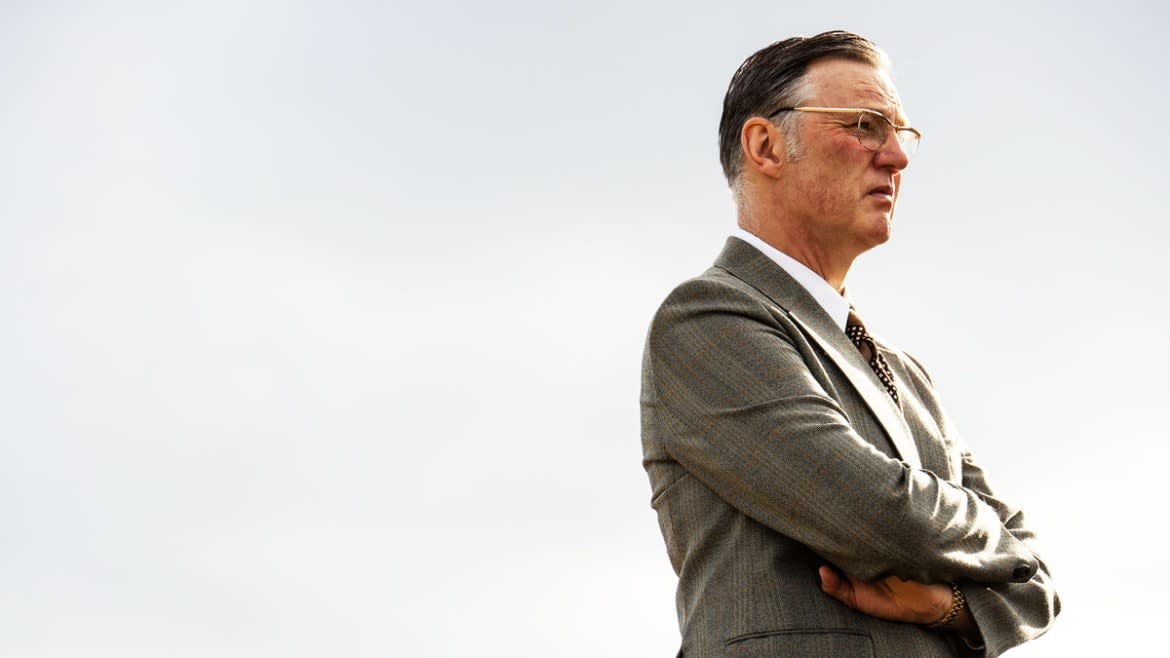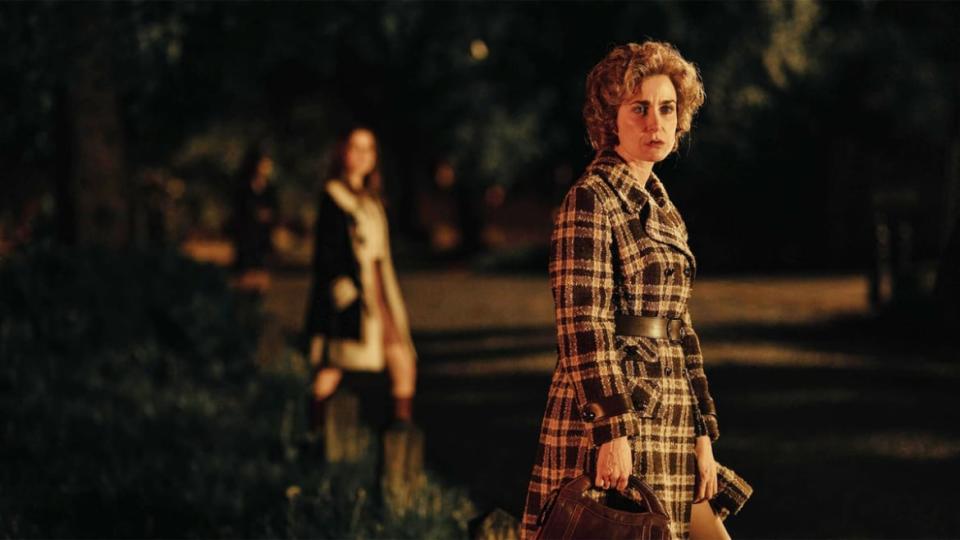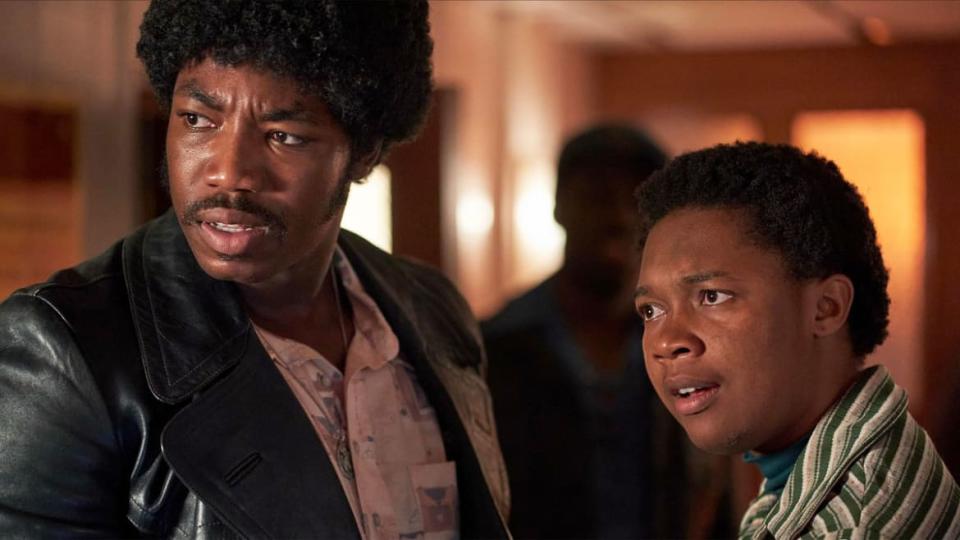‘The Long Shadow’: A Serial Killer Series Unlike One You’ve Ever Seen

There are so many serial killer stories because so many men want to kill women, and that fact is at the core of the genre’s latest offering, The Long Shadow, about the true-life slayings of 13 and assault of seven more—not to mention the numerous individuals who were never properly identified as victims—in the North of England between 1975 and 1980. Those crimes were committed by a fiend whom the press dubbed “the Yorkshire Ripper” and who was ultimately revealed to be Peter Sutcliffe. The hunt to identify and capture him forms the narrative backbone of Sundance Now’s seven-part British drama, premiering March 21. Nonetheless, in a way that few likeminded affairs have before it, this engrossing limited series recognizes that such tales are less about their specific fiends and more about ingrained misogyny and the lasting damage it causes women. To that end, its focus remains throughout on its traumatized female characters—at least, when it’s not raking police over the coals for their myriad blinded-by-sexism blunders.
An adaptation of Michael Bilton’s book Wicked Beyond Belief: The Hunt for the Yorkshire Ripper by writer George Kay (Hijack, Lupin) and director Lewis Arnold, The Long Shadow begins with the 1975 murder in Leeds of 28-year-old Wilma McCann (Gemma Laurie), who leaves her four children home alone at night and is found the next morning in the park behind her house, the victim of a fatal bludgeoning to the back of the head as well as 15 stab wounds. Detective Dennis Hoban (Toby Jones) is assigned to this horrific case, and though most of his colleagues assume that McCann was a prostitute, Hoban deliberately keeps such suggestions out of the papers, instead playing up her status as a single mother whose kids are now orphans. Hoban’s job becomes that much more complicated in short order, when wife and mom Emily Jackson (Katherine Kelly)—who’s turned to prostitution, much to her husband Sydney’s (Daniel Mays) chagrin, to support their clan—is picked up by a client on the street where women of the night ply their trade, and is discovered soon afterwards dead from injuries that resemble those found on McCann.
Hoban follows the leads that he has, be it vehicles spotted in these areas or a boot print found on Jackson’s body, but he finds himself going nowhere fast and The Long Shadow adds to the sense of everyone drowning in quicksand by providing routine text reminders of the numbers of days passed since this killing spree began. As much as it fixates on Hoban and his law enforcement comrades, it spends at least (if not more) time on the Ripper’s victims, detailing their ordeals in order to foreground them as the genuine empathetic centers of attention. Moreover, Kay and Arnold expend considerable sympathetic energy on the countless people (mothers, fathers, children, siblings, and friends) who are left behind to pick up the pieces in the wake of these senseless homicides, replete with close-ups that poignantly capture and commiserate with their suffering.
Save for a somewhat unnecessary final TV interview set in 2005, The Long Shadow never outright articulates its points about widespread misogyny and the manner in which it both begets and facilitates violence against women. Rather, it cannily and strikingly dramatizes those issues over the course of its years-long police inquiry. With nothing to show for his sleuthing, Hoban is replaced on the case by his underling Jim Hobson (Lee Ingleby).

After that produces little progress, the reigns are handed to Assistant Chief Constable George Oldfield (David Morrissey). Still, all these men are stymied by their prejudices—against prostitutes, who they initially assume are the Ripper’s preferred targets; and more generally, against women, who they view as unreliable—and also by their tremendous arrogance. Together, those two forces compel them to habitually ignore looking into other victims who didn’t work the streets, and to disbelieve the testimony of survivors, who wind up being wronged twice: first, by cops who label them liars, and then by a society that assumes they’re prostitutes simply because they were attacked by the madman.

The Long Shadow is a procedural with an overriding concern for those affected by male chauvinism and violence. Consequently, its investigative portions are both nail-biting and caustically critical, illustrating the myriad things that police got wrong in their search for the Ripper. At the top of that list was Oldfield’s chief mistake: Having received a taunting audio recording (on the heels of two letters) claiming to be from the Ripper, Oldfield became convinced of its veracity and therefore trained his eye squarely on suspects whose accents matched the voice on the tape. Kay and Arnold’s series contends that this misstep led to the deaths of at least three additional women, and after Sutcliffe received life in prison for his offenses (thus proving the tapes were a hoax), Oldfield’s decision was roundly censured by the 1981 Byford Report that painted a damning portrait of the police campaign.
For the Love of Slimer, Please Stop Making ‘Ghostbusters’ Movies
Sutcliffe is the boogeyman sought by everyone in The Long Shadow and yet Kay and Arnold’s real interest is 1970s British culture and a law enforcement system dominated by noxious male attitudes and assumptions, as well as the women—devastated and defiant, beaten down and brave—who persevered anyway, endeavoring to push back against a constant tide of marginalization and mistreatment. As a result, while Jones, Morrissey, and the rest of their male costars are all excellent, the drama’s female actors make the biggest impression, be it Jasmine Lee-Jones as a Black woman who suffers multiple indignities at the hands of authorities, Jill Halfpenny as the mother of a slain college student, or Kelly as a homemaker driven to desperate and demeaning ends in order to maintain an illusion of normalcy for her family. They’re the heart of these genre proceedings, and in that regard, the series—a stinging social critique masquerading as a gripping mystery—recognizes that the true-crime figures who most deserve to be remembered aren’t the rancid serial killers themselves, but those whose lives they irreparably destroyed.
Get the Daily Beast's biggest scoops and scandals delivered right to your inbox. Sign up now.
Stay informed and gain unlimited access to the Daily Beast's unmatched reporting. Subscribe now.

